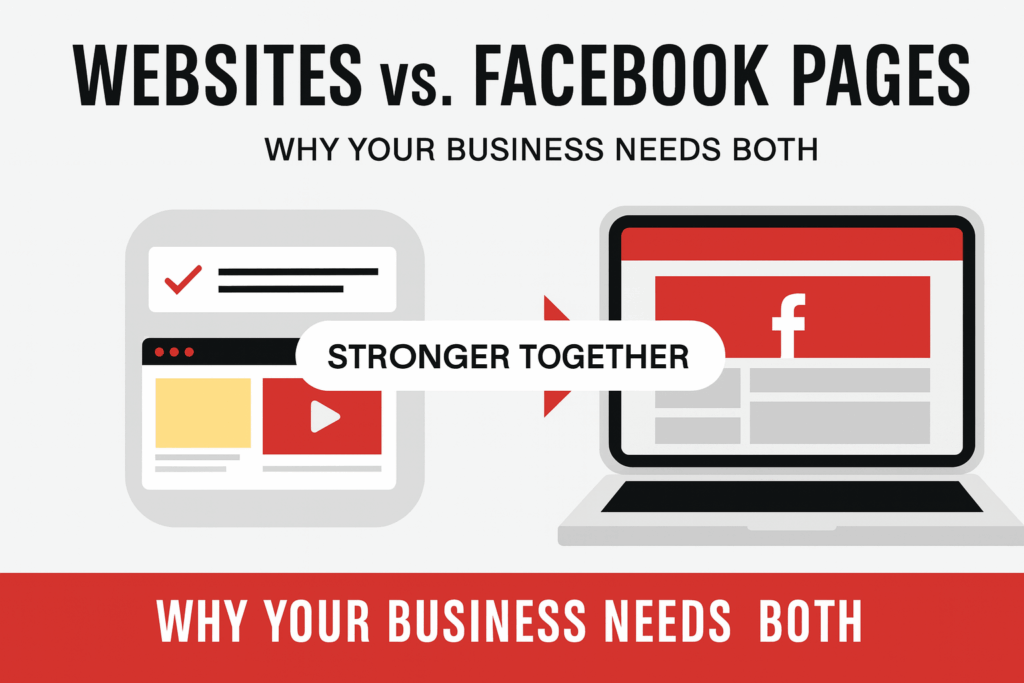Websites vs Facebook Pages is a debate most small businesses face, but the truth is your business doesn’t need to choose – it needs both. For many small businesses, Facebook has become the go-to spot for updates. It’s easy, it’s free, and customers are already there. In some cases, the Facebook page has become the “website.” But here’s the truth: Facebook and a dedicated website don’t compete – they complement each other. Relying on one without the other leaves opportunities on the table.
A website is your digital home base. It’s the one place online you fully control. On Facebook, your page looks like every other page, your posts fight the algorithm, and your information sits inside someone else’s platform. With a website, you decide the layout, the look, and the user experience. It’s your brand on your terms.
A professional website also builds long-term credibility. Unlike social platforms that can change algorithms or policies overnight, your website remains fully under your control. It’s where you can publish blogs, showcase testimonials, offer e-commerce, and track performance with analytics. These tools give small businesses the ability to scale and adapt quickly. Without a website, you’re essentially handing control of your digital identity to another platform.

Facebook is your community bulletin board. It’s where conversations happen, where you share updates, and where you connect in real time. Customers can comment, share, and tag friends. But it’s not built to replace a true online presence. If someone wants your full story, your services, or to make a purchase, a website is where that trust is built.
Another advantage of Facebook is reach. Billions of people log in daily, making it one of the easiest places to stay in front of your audience. When you share updates, run promotions, or post behind-the-scenes content, people can instantly interact with you. This kind of visibility builds community trust and humanizes your brand. However, because you don’t control how posts are delivered, relying on Facebook alone leaves gaps that a website can fill.
“Think of Facebook as the crowd, and your website as the stage. You need both to put on a show people will remember.”
When customers search on Google for “coffee near me” or “remodeling company in my area,” they’re not finding your Facebook page first – they’re finding websites. Search engines prioritize sites with proper structure, keywords, and authority. Without a website, you risk being invisible at the exact moment people are ready to buy.
On the other hand, having only a website means you miss out on the daily conversations happening in your community. A business that posts updates, engages with comments, and shows personality on Facebook feels active and trustworthy. People connect with what they see consistently.
The strongest small businesses use both. They post and engage on Facebook to stay visible in the community, then direct that attention back to their website where the story, credibility, and calls-to-action are clear. That combination builds new customers, loyalty, and long-term growth.
The smart move isn’t to choose between the two, but to build a strategy that uses both together. Think of your website as the anchor – the one place customers can always find you – and Facebook as the amplifier that pushes your message out. Together, they form a digital ecosystem that grows with your business and keeps you connected to both loyal customers and new prospects.
Wrap-Up
If you’re running everything from your Facebook page, you’re building on rented land. If you only have a website, you’re missing the conversations happening where your customers gather. Together, Facebook and a website create the complete digital foundation your business needs.
